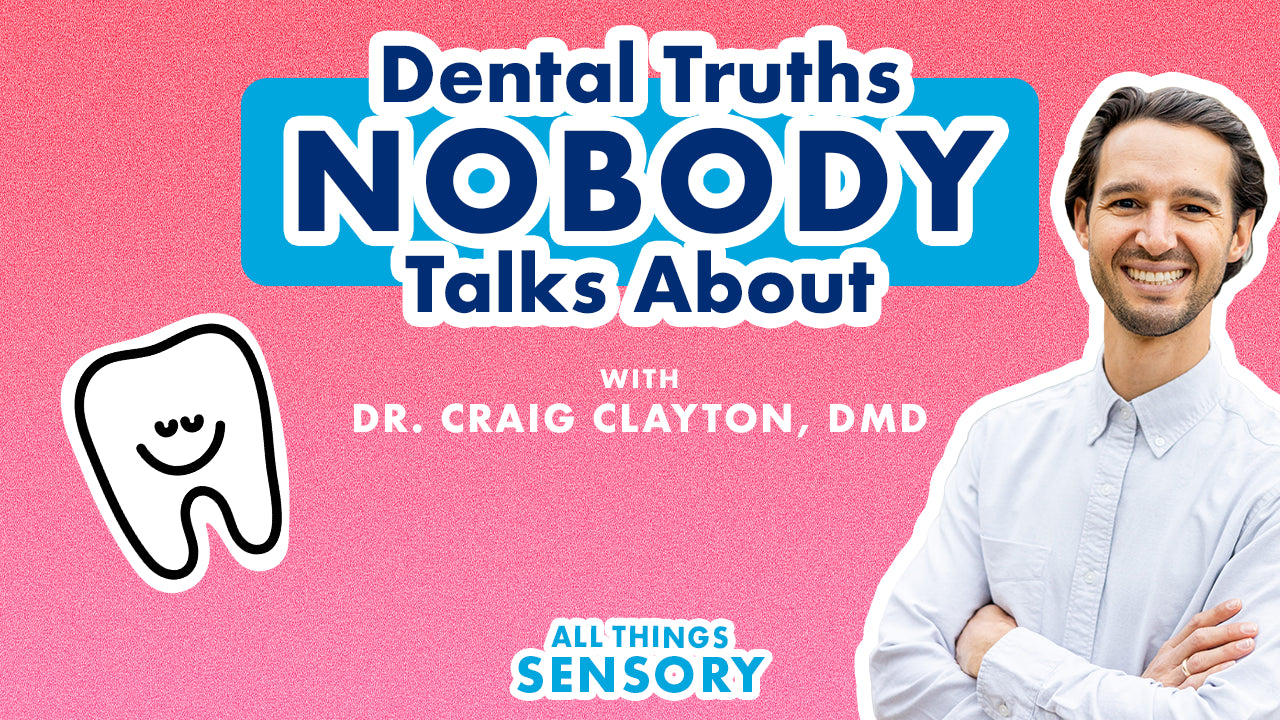Your Cart is Empty

Dr. Craig D. Clayton is a functional and biomimetic dentist based in Meridian, Idaho, and an influential online educator with a following of over 380K on Instagram. Passionate about uncovering the root causes of oral health issues, Dr. Clayton focuses on holistic cavity prevention, airway health, and innovative, biologically sound approaches to restoring teeth.
As the host of the Dentistry Disrupted podcast, he is on a mission to shift the dental industry toward a more patient-centered, root-cause-focused approach. Through educating and empowering patients, he hopes to bridge the gap between oral health and overall well-being.
Follow Dr. Clayton on Instagramhttps://www.instagram.com/restoration.dentistry
More informationhttps://restorationdentistryid.com/
Free resourceshttps://stan.store/restorationdentistry
Listen to Dr. Clayton’s Podcast - Dentistry Disrupted
We’d love to answer your questions on the podcast! Fill out this form ->https://harkla.typeform.com/to/ItWxQNP3
All Things Sensory Podcast Instagram
When a child struggles with focus, emotional regulation, or restless sleep, most parents and therapists don’t think to look inside the mouth. But according to Dr. Clayton, a functional dentist, oral dysfunction is a missing puzzle piece in many children experiencing symptoms of ADHD, anxiety, and sensory overload.
Many children show early signs of oral health dysfunction without parents realizing it. Worn teeth, crowded baby teeth, and constant open-mouth posture are not just cosmetic issues—they often signal sleep-disordered breathing and underlying airway concerns.
Dr. Clayton explains that when a child is breathing through their mouth instead of their nose, it impacts oxygenation and brain function. This can result in chronic fatigue, irritability, difficulty focusing, and even bedwetting.
Traditional dental care typically focuses on fixing cavities or straightening teeth. But Dr. Clayton takes a functional approach—one that looks at the root causes of oral dysfunction, such as:
Mouth breathing
Tongue ties
Narrow jaw development
Poor oral posture
Disrupted oral microbiome
He also highlights the problem with relying on fluoride-based treatments or aggressive interventions without addressing why the teeth are decaying or misaligned in the first place.
There is growing evidence linking sleep-disordered breathing and ADHD-like symptoms. Children who snore or sleep with their mouth open often experience fragmented sleep and reduced oxygen levels overnight—a perfect recipe for daytime inattentiveness, hyperactivity, and emotional dysregulation.
Dr. Clayton emphasizes that children with sensory issues may already struggle with regulation and arousal. Add poor sleep to the mix, and you have a child who appears "behavioral," when the real issue might be physiological.
Parents and professionals should take note if a child:
Snores or breathes through the mouth at night.
Has difficulty staying asleep or wakes frequently.
Wears down their teeth unnaturally.
Has a high-arched palate or visible tongue tie.
Struggles with feeding, gagging, or oral sensitivity.
Dr. Clayton shares several steps families and therapists can take:
Encourage nose breathing during the day and during sleep. Mouth tape may be an option under guidance.
This is a series of oral exercises to improve tongue posture, strengthen the oral muscles, and support healthy jaw growth.
Many commercial products disrupt the oral microbiome. Dr. Clayton recommends brushing with water or using well-tested, safe alternatives like xylitol-based mints.
Frequent snacking, sugary drinks, and even sipping electrolytes throughout the day can disrupt oral health.
Work with a pediatric OT, speech-language pathologist, or functional dentist who understands the oral-motor and airway connection.
It’s easy to feel overwhelmed when uncovering yet another piece of the puzzle in your child’s development. But here’s the good news: understanding and addressing oral dysfunction can be a powerful turning point.
By supporting oral motor skills, you may see improvements in sleep, attention, and emotional regulation—areas that impact your child’s everyday life. It’s one of those often-missed keys that can open the door to lasting progress.
BORING, BUT NECESSARY LEGAL DISCLAIMERS
While we make every effort to share correct information, we are still learning. We will double check all of our facts but realize that medicine is a constantly changing science and art. One doctor / therapist may have a different way of doing things from another. We are simply presenting our views and opinions on how to address common sensory challenges, health related difficulties and what we have found to be beneficial that will be as evidenced based as possible. By listening to this podcast, you agree not to use this podcast as medical advice to treat any medical condition in either yourself or your children. Consult your child’s pediatrician/ therapist for any medical issues that he or she may be having. This entire disclaimer also applies to any guests or contributors to the podcast. Under no circumstances shall Rachel Harrington, Harkla, Jessica Hill, or any guests or contributors to the podcast, as well as any employees, associates, or affiliates of Harkla, be responsible for damages arising from use of the podcast.
Keep in mind that we may receive commissions when you click our links and make purchases. However, this does not impact our reviews and comparisons. We try our best to keep things fair and balanced, in order to help you make the best choice for you.
This podcast should not be used in any legal capacity whatsoever, including but not limited to establishing “standard of care” in a legal sense or as a basis for expert witness testimony. No guarantee is given regarding the accuracy of any statements or opinions made on the podcast.
Comments will be approved before showing up.